Here’s how Nedumudi Venu recalled his journey as an actor
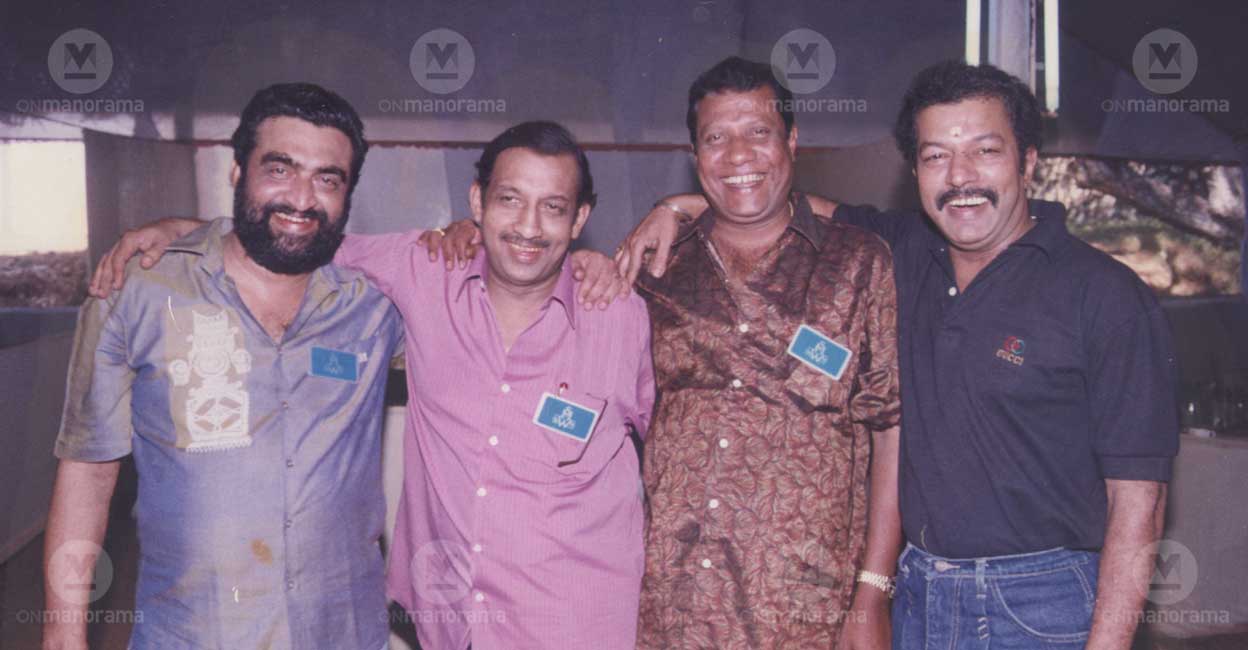
Mail This Article
Late actor Nedumudi Venu always loved to be known as K Venugopal the son of PK Kesava Pillai and P Kunjikuttiyamma, who were both teachers. He had always attributed his artistic flair to the incredible experiences that he had enjoyed in his family and his native place too. Venu and his elder brothers had studied at the NSS School where their father had been a teacher. “More than academics and lessons, our house was filled with the reverberations of art. My father used to host gurus who taught us music and musical instruments. By the time I grew up, he had retired and the income became less. So, he couldn’t give me special training in any art form,” recalled Venu.
Venu completed his high school education from Champakulam St. Mary’s School. He was often the only student who would take part in the youth festival from that school. He won many prizes in Mridangam and Ghatam competitions. He had elected third group for his pre degree course at SD College in Alappuzha. After that Venu enrolled for the BA Malayalam course in the same college.
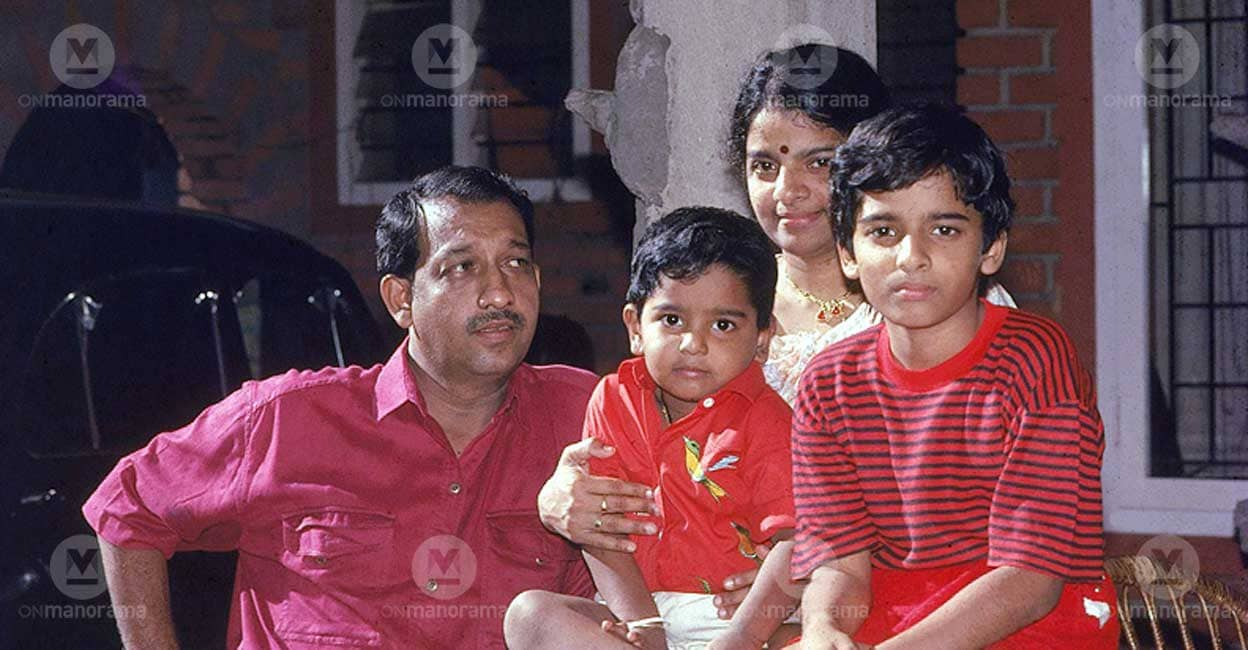
It was during the same time that veteran filmmaker Fazil had studied there in the Economics department. “I liked him; he appreciated and enjoyed good art. I had essayed the role of Paashanam Varkey in the Kaladi Gopi’s play Ezhu Raathrikal. Acting venues and stages brought me and Fazil closer. After college, I and Fazil would remain there, imitating our classmates or even strangers. Later, that grew into fully fledged entertainment performance at wedding venues and other events. It was in fact the initial form of an art form which later became popular as mimicry,” the actor said.
After completing their graduation, Fazil joined for post graduation while Nedumudi Venu got a job as a teacher at the Sreevidya parallel college in Champakulam. He used to write many plays and perform in them too. One day, legendary playwright Kavalam Narayana Panikkar was the judge of a drama completion where Venu had participated. Panikkar who enjoyed the play by Venu and his friends, invited them to his workshop to meet them personally. “The Kavalam kalari (workshop) was the perfect place for me as its rhythm, music and songs perfectly suited my artistic nature. But, Fazil, who preferred the commercial style of art soon returned to Alappuzha. Fazil, then went on to become one of the greatest filmmakers in Malayalam cinema who had delivered countless super hit movies,” Venu had said with pride.
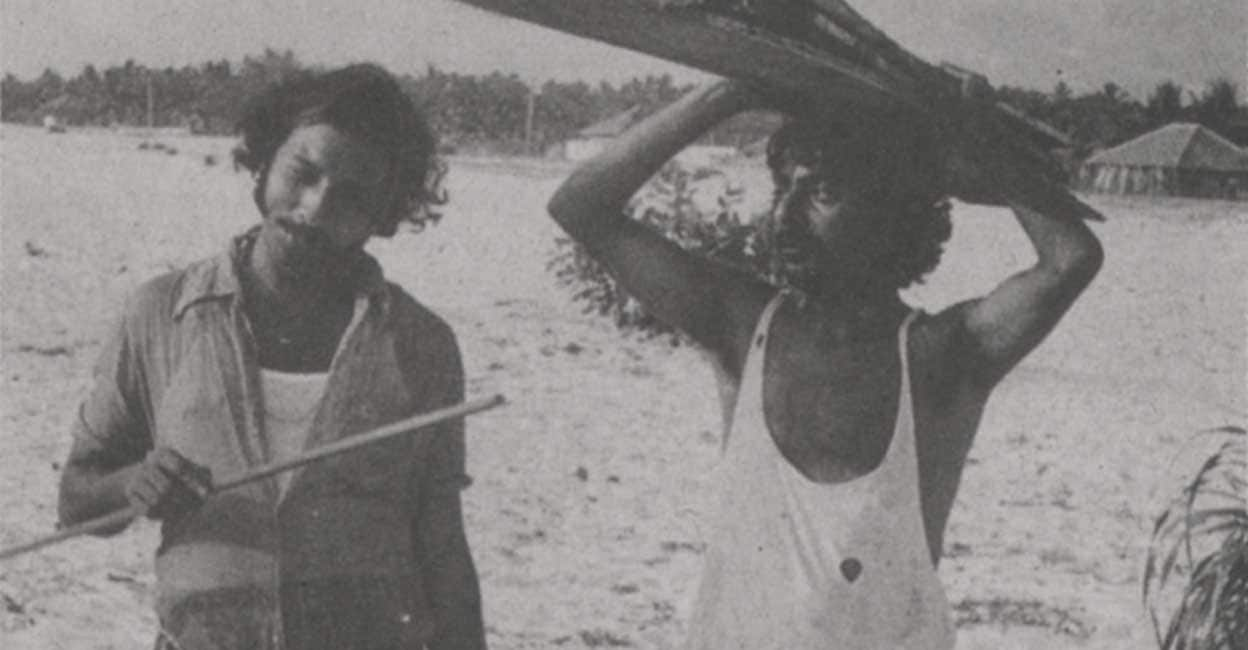
Eniku Shesham was the first play that Venu had performed at the Kavalam kalari. After that, he did Daivathar. Meanwhile, he gave training sessions in drama for the kids at Alappuzha Jawahar Balabhavan. By the time he was doing the play Avanavan Kadamba, the Sopanam troupe shifted its base to Thiruvananthapuram. It was a major move for Venu too as he left Alappuzha which had always been his stronghold.
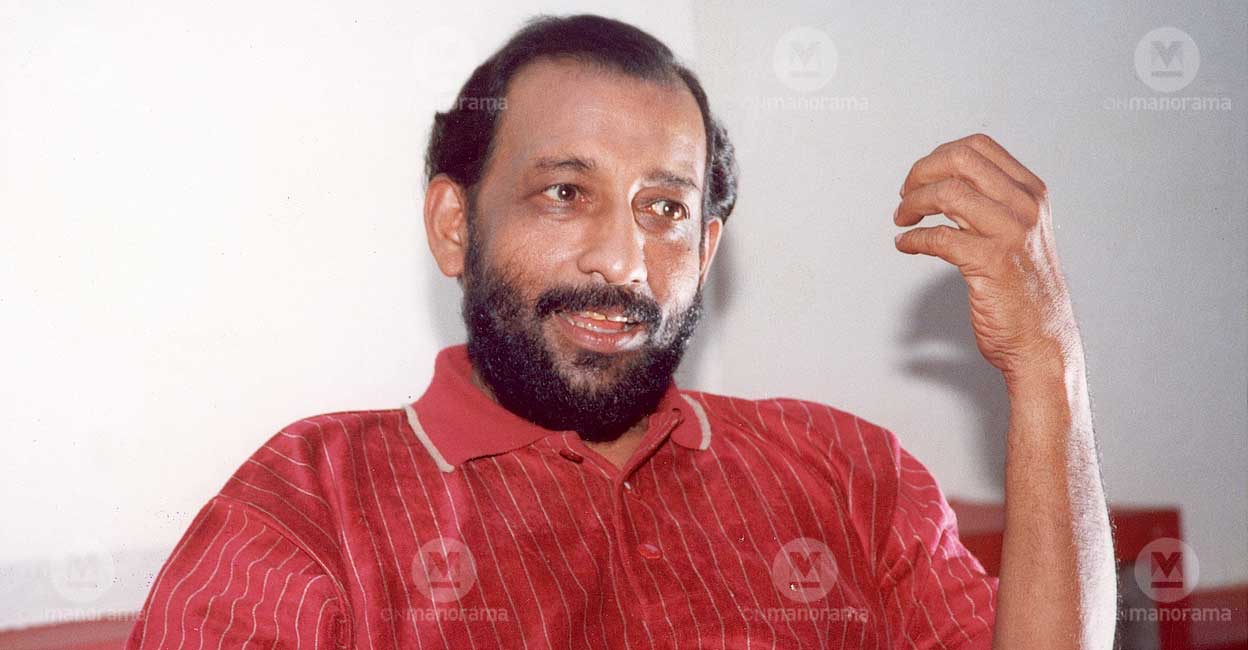
At Sopanam, Venu got acquainted with actors like Gopi, Krishnankutty Nair and Jagannadhan, filmmaker Aravindan and poet Kaithapram Damodaran Namboothiri who hasn’t entered the cinema field yet and young filmmakers like Bharathan and Padmarajan. Sopanam was the place where those who loved art used to hang out. Apart from Nedumudi Venu, everyone else had some sort of income. That is how Kavalam Narayana Panikar and Aravindan arranged a journalist’s job for Venu at Kalakaumudi.
When he didn’t have any drama programs, Venu would wander around looking for features and articles for Kalakaumudi and film magazine. From traditional artists, playwrights, cinema workers, junior artists and painters who painted cutouts to those who supplied snakes, parrots and other animals to film locations, Venu wrote countless features about almost all aspects of film and filmmaking.
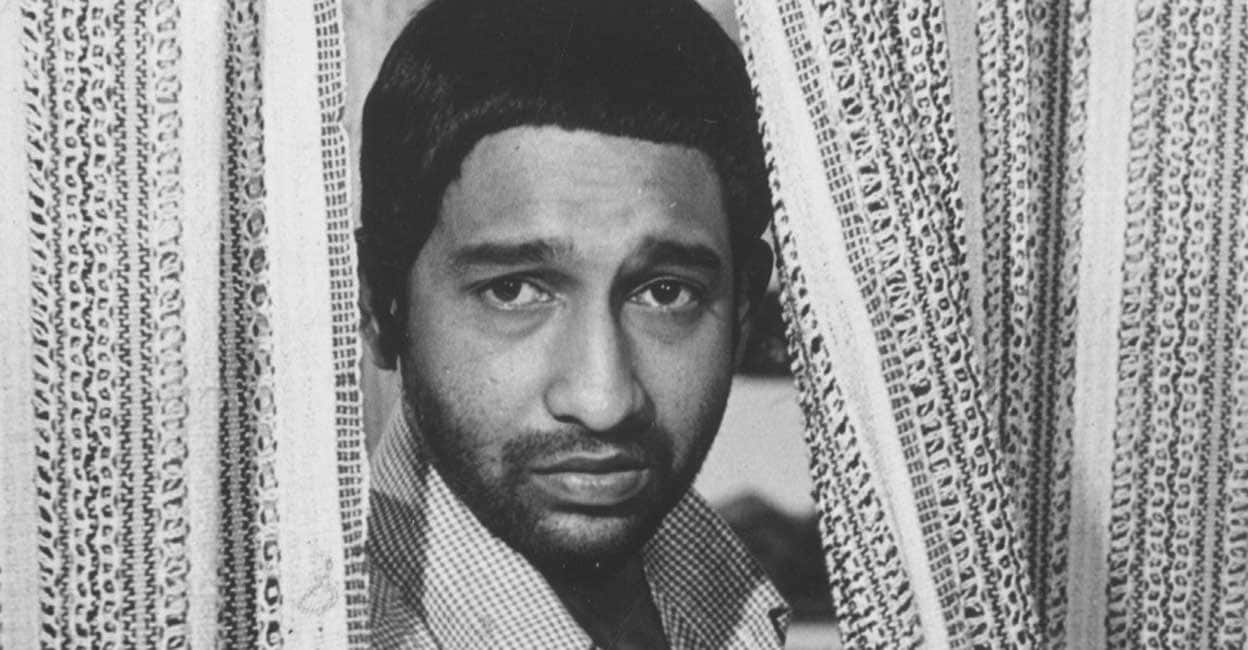
Being a film journalist helped him form friendly relations with prominent artists like super star Prem Nazir. It was during his stint as a reporter that Venu became close friends with director Bharathan. At that time, Bharathan was a new director, having only directed his debut movie Prayanam. However, he didn’t know that Venu was an actor. Later, it was Padmarajan who told Bharathan about Venu’s flair for acting.
In the evenings, Venu used to go to Bharathan’r room and the duo spoke about many things. During one of their conversations, Bharathan had hinted about directing a film called Aaravam. He had Kamal Haasan in his mind for playing the main role. Later, Bharathan asked Venu whether the latter could essay that role.
“I wasn’t too excited as I was never fascinated about the movies. I was happy to associate with theater which I loved. For income, I worked as a journalist too. But, Aravindan asked me to do the role in Thambu. Aarvam came after that. Even after those movies, I didn’t think that cinema was my world. It took around fifteen years for me to take cinema more seriously. When I became busy in the movies, I gave up my job as a journalist which I had been doing for six years. Since then, cinema has been with me for 43 years,” Venu had said.
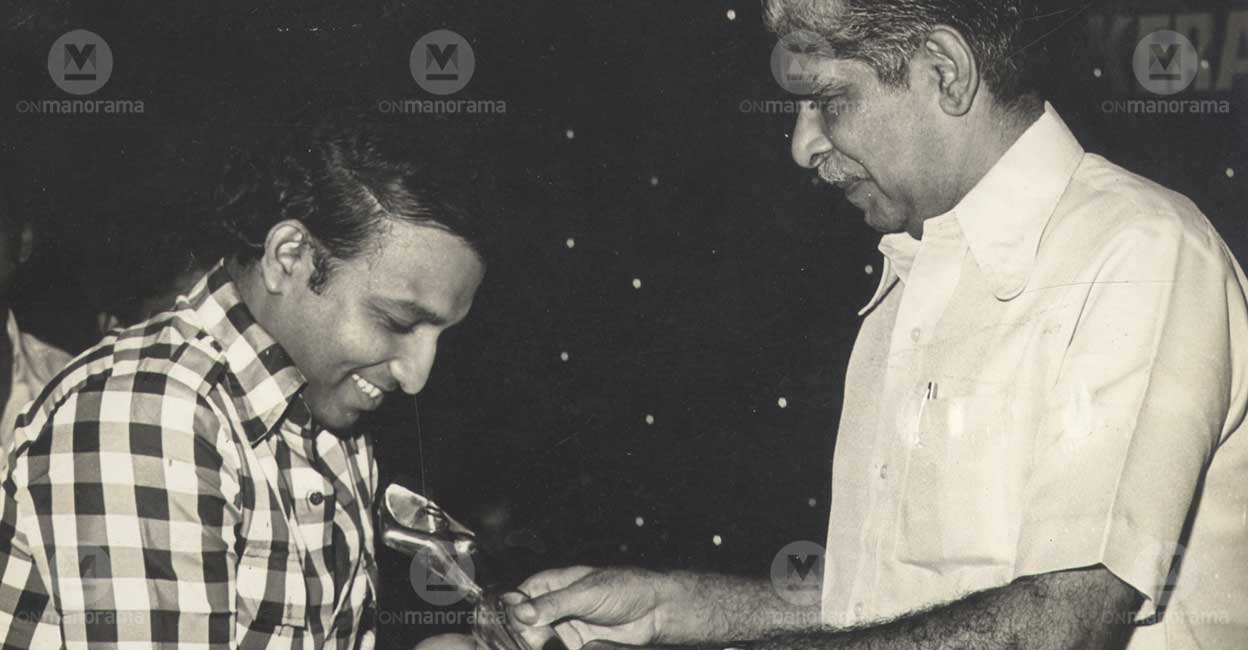
Greatest lesson
“Every job offers opportunities to try out new things. A good artist should be able to reject what is unnecessary even while embracing tradition. As an actor, I have been trying to do the same. Not everyone can choose the job or a field of career that they like. However, you will be satisfied if you find happiness in the job that you do. You might not find happiness in your first job. But, I am sure that there would be a moment in everyone’s life when they actually realize whether they like a job or not,” noted Nedumudi Venu.

